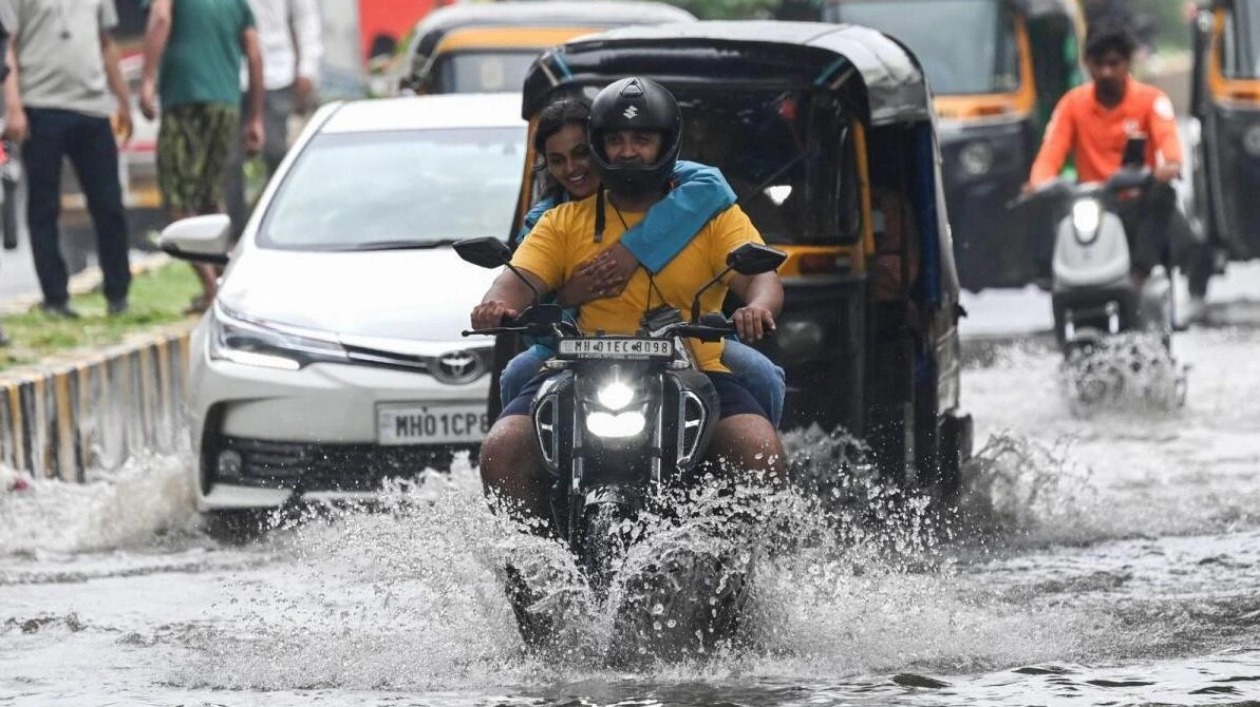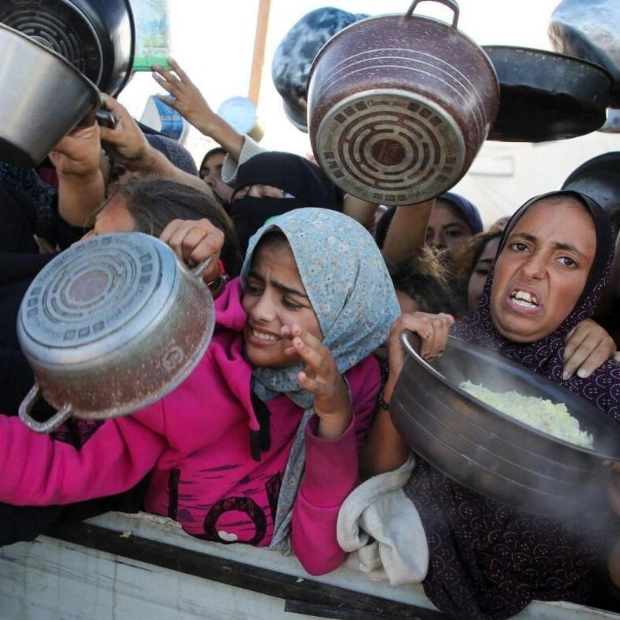Heavy rains inundated roads and railway lines in Mumbai, India's financial hub, on Monday, leading to flight disruptions and the closure of educational institutions. Civic officials reported that over 300 mm (11.8 inches) of rain fell on the city of 12 million within six hours before the morning rush hour, starting from 7:00 a.m (0130 GMT). Further heavy rainfall and a high tide of 4.40 metres (14 ft) were anticipated. "Traffic is heavy on the roads, and rail lines are also impacted," stated Eknath Shinde, Chief Minister of Maharashtra, urging residents to stay indoors on X. Mumbai's commuters navigated through knee-deep water, with vehicles partially submerged in many areas, and traffic congestion on the Eastern and Western Express highways. Railway authorities had to cancel some long-distance trains due to water on the tracks, while television footage showed suburban trains halted on flooded lines and some passengers walking along the tracks to reach their destinations.
Mumbai's annual struggle with rain-induced flooding was evident again this year. "My BMW car is stuck in the floodwater," Anil Bore shared with ANI news agency. India's monsoon rains, which commence at the end of May, provide relief from the summer heat but have also caused widespread flooding in recent years. In Bihar, lightning strikes have claimed 12 lives, bringing the total to 20 since July. Over 2 million people in Assam have been affected by river flooding, including the Kaziranga National Park, where six one-horned rhinoceroses drowned. Assam has reported 66 flood-related deaths since May. Flooding has also impacted 31 villages in Uttar Pradesh and triggered floods and landslides in Nepal, resulting in at least 11 fatalities. In Bangladesh, over 2 million people have been affected by flooding, with 300,000 stranded in the north. With more heavy rain forecasted, the situation is expected to worsen.
"We're definitely seeing more rain this year. It's making it tough for people, especially in low-lying areas, to secure their belongings and reach shelters in time," said Liakath Ali, head of climate change programme at development agency BRAC. Following record-breaking rains in New Delhi that led to the fatal collapse of an airport roof, Mumbai's rainfall also disrupted air travel. Airport authorities suspended runway operations for over an hour from 2:22 a.m., leading to more than 430 flight delays and 49 cancellations. Airlines such as IndiGo, SpiceJet, and Air India reported disruptions.






